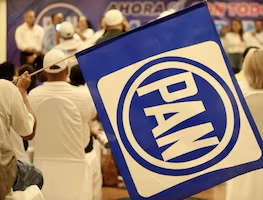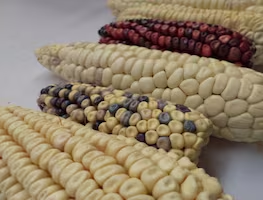Más Información

"Grave error" dejar a Marko Cortés como líder en el Senado, advierte Adriana Dávila; PAN debe desligarse de liderazgos fallidos, afirma

Morena prepara nueva reforma constitucional para prohibir maíz transgénico; "sin maíz no hay país": Monreal

Último fin de semana del 2024 registra 171 asesinatos: SSPC; en promedio mataron a 57 personas por día

Oposición rechaza postura de Morena sobre revueltas por dichos de Trump; “está fuera de la realidad”, acusan

INE debe determinar si Morena puede promover el voto en la elección judicial: Sheinbaum; “importante que todas las autoridades participen”
On March 2019, Carmen García Estrada and José Hernández Salazar got in their car and traveled to the Guerrero mountains. Their goal was to get to the poorest communities in the state of Guerrero , Cochoapa El Grande and Metlatonoc , to present their new project: the Bibliocombi , a library on wheels , nevertheless, their car broke than and they weren't able to reach those communities after planning the trip for 5 months.
After stopping by the Santa Cruz del Rincón community , in the Malinaltepec community , the couple made a stop at the Justo Sierra elementary school and that is the place where the Bibliocombi took off, a project that aims to promote reading in the most marginalized and poor communities in Oaxaca .

The Project
Carmen
and José are retirees and met over 30 years ago. When they retired in 2014 and 2015, they decided that they wanted to bring books and literature closer to children and they learned about a library on wheels in Spain and Colombia .
In October 2018 they started looking for a van. They found one and fixed it until it was ready to become a library on wheels . Then the couple bought 100 books . Then they decided they would visit the poorest municipalities in the state, Metlatonoc and Cochoapa El Grande but they never made it because their van broke down. They made a decision: until they could find a better engine for the Bibliocombi , they would visit nearby communities such as Marquelia, Copala, Azoyú , and San Luis Acatlán .
Inequality
In 2018, the National Institute for the Evaluation of Education (INEE) presented a study that indicated that the inhabitants of Indigenous communities are three times more likely to be illiterate . It also revealed that the Indigenous people in Guerrero are the most affected by educational lagging : 30% of its inhabitants don't know how to read or write .
The same study shows that one of the reasons behind this issue is that from the 29,000 schools in the region, only 2,000 of them hired bilingual teachers .
In Guerrero , on average, for every 100 people over 15 years, 14 of them are illiterate ; this is twice as high as the national average .
Carmen
and José say that it is in marginalized communities where the library has been accepted the most: “ Children are more interested in learning more about books , learning more about chess. We have a theory. These children are more alienated from technology , from cellphones , from computers ,” Carmen explained.
Solidarity
Carmen
and José don't receive government aid and they don't plan to request it. On the other hand, they have received a lot of support from society , schools , and universities who have sent them books .
Carmen
and José know that through literature , Guerrero can overcome any social and economic obstacles .
They are now looking to launch a new project. They are hoping to screen movies in different communities, while they continue to work on the plant nursery they have built for elementary and junior high students .
gm






